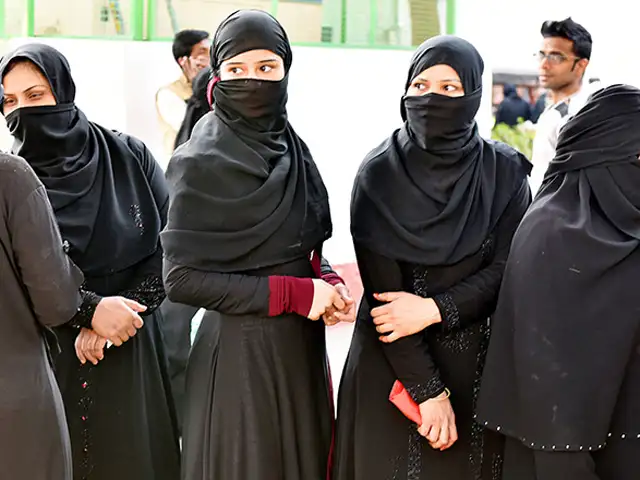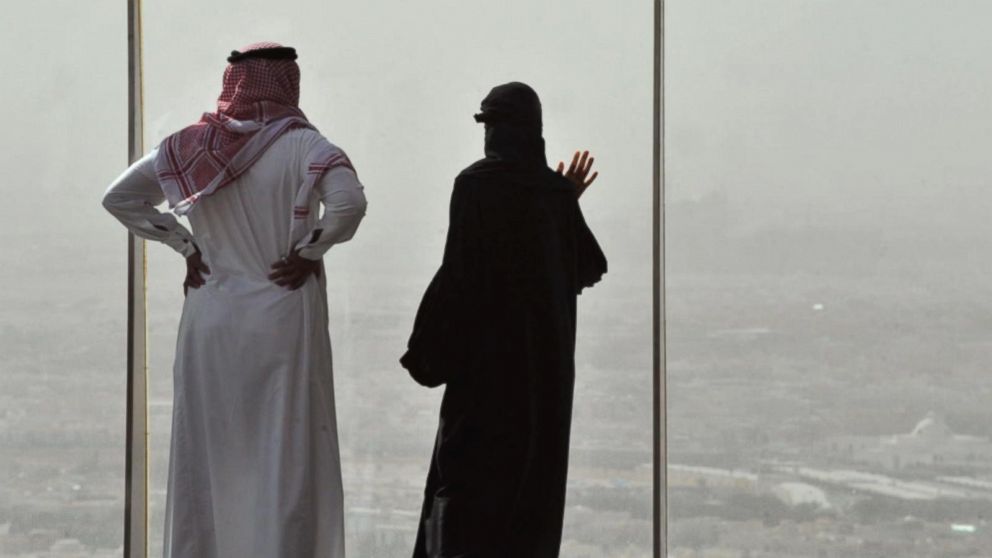Welcome
back to the second article in our series Misogyny and Religion!
Today, we
shall discuss the next major religion: Islam, and how its teachings have
promoted misogyny and patriarchy in the society.
So, gather
around again everyone. It’s time for another story. This time, the story is
about Aisha.
Aisha was a
six-year-old girl who lives in approximately 600 CE in what is now known as the
Kingdom of Saudi Arabia.
She was
married to Prophet Mohammed (PBUH) at this age, and the marriage was
consummated three years later, when Aisha turned nine.
 |
| Child Marriages in Germany (Source: Snopes) |
Read that
again. A six-year-old girl was married off, and the marriage was consummated
when the girl was merely 9 years old.
Oh, and did I mention, that Prophet Mohammed
(PBUH) himself was around 52 years old at the time.
No matter
the time period this is set in, marriage to a 6-year-old girl ought to be
banned in every culture. But this happened, and this incident as well as the
age of Aisha is verifiable through several Hadiths. These include: Bukhari Book
58 – Hadith 236, as well as Hadiths 64,65, and 88 from Bukhari Book 62.
 |
| A typical child marriage (Source: UNRESERVED) |
Islam is
the second most followed religion in the world, with a global following of
close to 2 billion people, which makes up around 23% of the world population.
However,
more importantly, it is also the most misunderstood religion in the world, and
the beginning of Islamophobia in the world can be traced back to the 11th
of September 2001, when a few “Muslims” flew planes into the Pentagon as well
as the World Trade Center, causing hundreds of deaths.
 |
| The 9/11 Attack (Source: Time Magazine) |
Since then,
Muslims all over the world are associated with terrorism and violence by
Westerners. However, that is not the point of our analysis today. We shall
today be analyzing the Islamic scriptures to find out whether Islam has traces
of misogyny and patriarchy.
Just like
in Hinduism, menstruating women are considered impure even in Islam, and it has
been said that their prayers will not be accepted while they are menstruating.
It also says that after the menstruating period is over, women should purify
themselves before praying or engaging in household activities of any sort.
However,
Islam also considers women to be secondary or inferior to men. Marital rapes
and domestic violence have been permitted and in fact encouraged by the Quran
in several verses. The Surah an-Nisa verse 34 says that if a man suspects that
his wife is cheating, then he is permitted to beat her and admonish her. In
Surah 2:223, it is also stated that, “Your wives are a place of sowing
of seed for you, so come to your place of cultivation however you wish and put
forth [righteousness] for yourselves.” This is a clear-cut indication that Islam treats women as property,
and it is said that the husband may do whatever he wants with his wife, as she
has been compared to a place of cultivation.
 |
| Women and Islam (Source: Economic Times) |
I wish I
could say that this was all. But sadly, no it isn’t.
Quran 4:34
also states that men are supposed to be in charge of women, because they were
made to excel over women. It has been hinted in several verse that all prophets
of Islam were males and not females because females were considered to weak and
untrustworthy of performing such tasks.
This is
also responsible for the verse in Muslim law that states that the testimony of
one man is equal to, if not greater than, the testimony of two women.
The
negative influence that following Islam can have on women’s rights can be
clearly seen by looking at the condition of women in countries where Islamic
law is followed to the letter. The best example of such a country is the
Kingdom of Saudi Arabia, with is the birthplace of the religion of Islam.
 |
| Women in Saudi Arabia (Source: ABC News) |
In Saudi
Arabia, women are considered as permanent legal minors. Ever since they are
born, they need to have a legal guardian, who is responsible for a variety of
decisions throughout their life. This is usually their father or husband, but
may also be her brother or son.
Women in
Saudi Arabia were not permitted to drive cars until recently. They are not
allowed to get passports or travel without the express written permission of
their guardians. There are also frequent incidents where girls as young as 8
are married off, since the consent of women is not needed for marriage, and the
guardian is the deciding authority. Domestic violence is prevalent and very
common, and there is no system for women to be able to divorce their husbands
in case of abuse. On the contrary, men are permitted to unilaterally divorce
their wives, and very often the women aren’t even aware that they have been
divorced until much later.
| The first driving licences issued to women in Saudi Arabia in June 2018 (Source: The Hindu) |
Perhaps the
harshest law is that in Saudi Arabia, women are allowed to inherit only half of
what male heirs inherit.
And this
brings us to the ultimate question: is it the fault of Islam, or the
interpretation, or the time period?
The answer
is that it is the fault of all of them, in varying proportions. While Islam in
itself has several elements of male superiority embedded in it, a lot of blame
can also be placed on translations. Several Islamic scholars have come up with
different interpretations of the verses. People often see what they want to
see. People understand what they want to understand. And since most verses were
written thousands of years ago, they are often open to different translations.
 |
| Women being denied rights in Islamic countries (Source: Human Rights Watch) |
However,
the main fault is with the people, who wish to follow the Quran to the letter.
Times have changed since 600CE, and we must learn to change with them. These
are times of equality, and it is essential that religious practices be altered
in order to fit the message. Islam is a religion of peace and love, however
following such old and barbaric practices are responsible for giving Islam a
bad name throughout the world.
Therefore,
as I said in my previous article, it is essential that teachings and
interpretations of religious messages evolve with the times. What is even more
important that the practices are the beliefs, and those are nothing but love.
-NK

Comments
Post a Comment